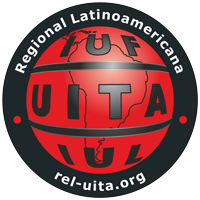Chile | HR | UNILEVER
An outsourced worker dies and the multinational corporation looks the other way
Unilever and its shadow of casualization and death
Walter Jonathan Bartholin Lillo, a worker at Unilever-ID Logistic (subcontracted by Unilever), died on June 15 as a result of a serious work-related accident suffered as he performed his tasks, and the multinational corporation is not taking responsibility for the incident nor has it issued an official communication of his death. It is one of the consequences of the outsourcing and casualization process that the British-Dutch company has been embarked on for the past three years in Chile.
Gerardo Iglesias

“The company did not even suspend activities at the plant and the accident went unnoticed by society, the workers, and the authorities. We must not forget that Unilever has a lot of money and it would not be surprising if it had bought off the press,” union leaders of our organization in Chile informed La Rel.
“They have everything outsourced now and their management says they have nothing to do with the death of the worker. But that is a lie. They are responsible because that company is contracted by them. This is the first time in more than sixty years that a person dies while working at Unilever in Chile,” and the responsibility lies with the current human resources direction, the labor leaders said.
Last year, when the multinational corporation closed its last plants in the country, following several adjustments in personnel and facilities, it had some 320 employees. It laid off 250 and kept the rest for administrative tasks in the companies it outsourced work to.
“The subcontracting process has led to the deterioration and casualization of work, which has resulted in Unilever’s current workforce being outsourced to small and medium-sized national and foreign companies and in the multinational corporation’s failure to respect any safety or corporate social responsibility standards.”
This outsourcing process “is also being carried out at the last company they closed, the detergent and chemical products plant. They are building a new plant and have transferred the brands to a Colombian company (SCALPI). They’re calling workers to hire them for minimum wages, with no collective bargaining agreement or union. It is disgraceful and outrageous.”
The anti-labor offensive began when Lucas Flores (Argentine) and Felipe Valdez (Chilean) took over the human resources direction. “They fired over 3,000 workers and outsourced everything to cut costs,” the unionists denounced.

